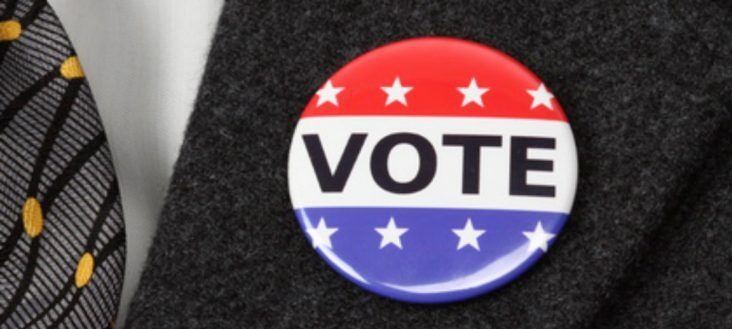Coalition forms to oppose measure requiring 60% majority for initiatives
by February 24, 2022 5:29 pm 922 views

A coalition opposing an amendment that would require a 60% supermajority to amend the Arkansas Constitution or pass an initiated act filed paperwork with the secretary of state’s office Thursday (Feb. 24).
The group, Protect AR Vote, opposes Issue 1, which was referred to this year’s ballot by the Legislature last year.
The amendment would require 60% majorities for passage of constitutional amendments initiated by voters or referred by legislators. Both currently require a simple majority. The Legislature can refer up to three amendments per election cycle.
It also would apply the 60% standard to initiated acts, which are citizen-led statutes similar to laws passed by the Legislature.
The coalition includes Arkansas Advocates for Children and Families, AR NAACP, Arkansas United, Citizens’ First Congress, For AR People, AR Public Policy Panel, League of Women Voters of Arkansas, League of Women Voters of Faulkner County, League of Women Voters of Pulaski County, League of Women Voters of Washington County, Arkansas Voters First, AAUW, and Indivisible of Little Rock and Central Arkansas.
Arkansas voters in 2020 rejected Issue 3, a referred amendment that would have raised the signature requirement for citizen-led measures to appear on the ballot. The vote then was 56% to 44%.
In a press release announcing the committee’s filing, Bonnie Miller, chair of Protect AR Vote, said, “Ballot measures give citizens of our state the power to make laws when politicians fail to do their jobs. Don’t let politicians and special interests change the system that has served Arkansas well for the past 112 years. Lobbyists are pushing Issue No. 1 because they can’t control citizens the way they control politicians. If they get rid of ballot measures as we know them in Arkansas, it will mean more power for lobbyists, more backroom deals, and less power for voters to decide on the issues that matter most.”
George Shelton, a board member with Protect AR Vote, said in an interview the groups that had opposed Issue 3 in 2020 had remained in contact and activated the coalition to oppose Issue 1.
“This is an important part of our process,” he said. “Having the ability to put issues on the ballot is one of the ways in which we’re able to hold our Legislature accountable. We view initiatives like this that make it harder for voters, Arkansas voters, to access direct democracy as a fundamental issue that is dangerous to Arkansas voters.”
Rep. David Ray, R-Maumelle, the lead House sponsor of Issue 1, said it’s too easy to amend the Constitution. While the U.S. Constitution has been amended 27 times, the Arkansas Constitution has been amended 102 times. A 60% threshold would ensure amendments are passed with a genuine consensus, not just a bare majority, he said.
He said Arkansas being a small, rural state makes it easier and cheaper for outside groups to change the Constitution.
“That process is fairly easy for big money or out-of-state interests to hijack because all they have to do is spend a large sum of money in a relatively short window of time, and temporarily convince people that something is a good idea,” he said. “And then viola, it’s in the Constitution forever and ever.”
The 60% threshold for passing initiated acts is higher than the 50% threshold required for the Legislature to pass non-spending bills. Ray said the Legislature has historically been hesitant to amend or repeal initiated acts, so they have an element of permanence. The Legislature can only amend them with a two-thirds majority.
Voters in recent years have passed ballot initiatives that likely would not have made it through the conservative Arkansas Legislature. In 2018, 68.5% voted for an initiated act to raise the minimum wage and 54% voted for an amendment allowing casino licenses in four counties. In 2016, 53% voted for an amendment legalizing medical marijuana.
A poll by Talk Business & Politics and Hendrix College released Feb. 15 found that 53% of respondents were probably or definitely against the 60% threshold amendment, while 19% were probably or definitely for it and 28% didn’t know.
Ray took issue with the poll’s question, which said the amendment would require a 60% supermajority for citizen-led initiatives, but did not mention that the supermajority also would be required for legislatively referred amendments.
Ray said he views the amendment as a check on legislative power. He said voters have passed what he termed as bad amendments that were referred to them by the Legislature. For example, in 2020, 55% permanently extended a half-cent tax for highways. In 2014, 52% voted for an “ethics” amendment.
He said liberal voters can support Issue 1 because many conservative amendments can easily pass the 50% threshold in today’s political climate.
“I don’t view this as a particularly ideological measure,” he said. “It is designed to simply put some safeguards on our constitutional amendment process.”
